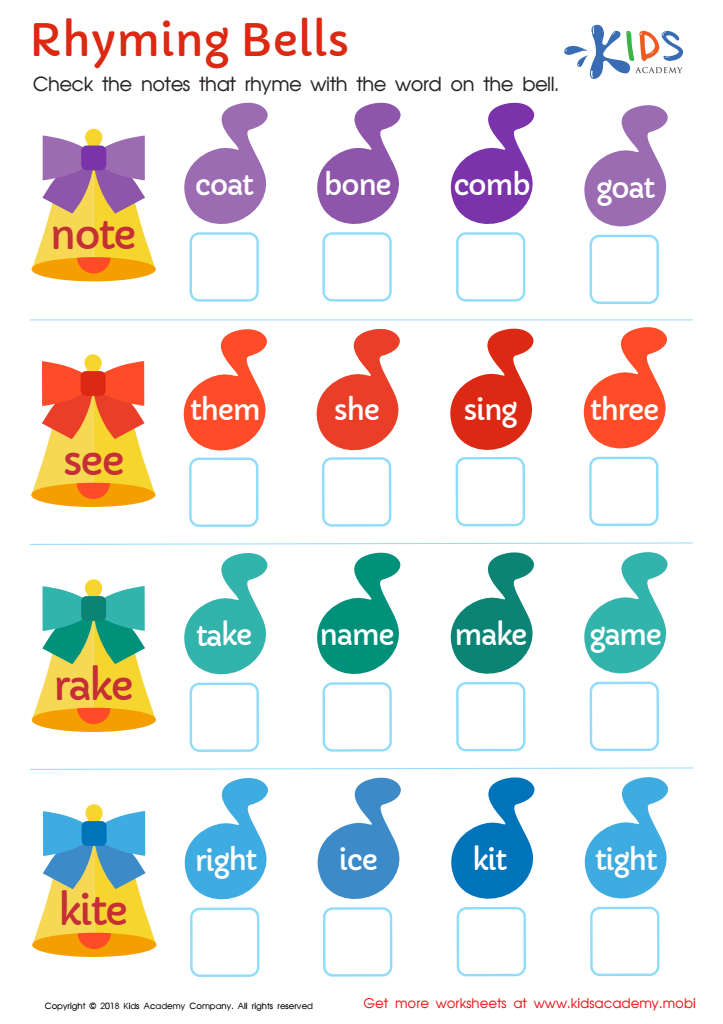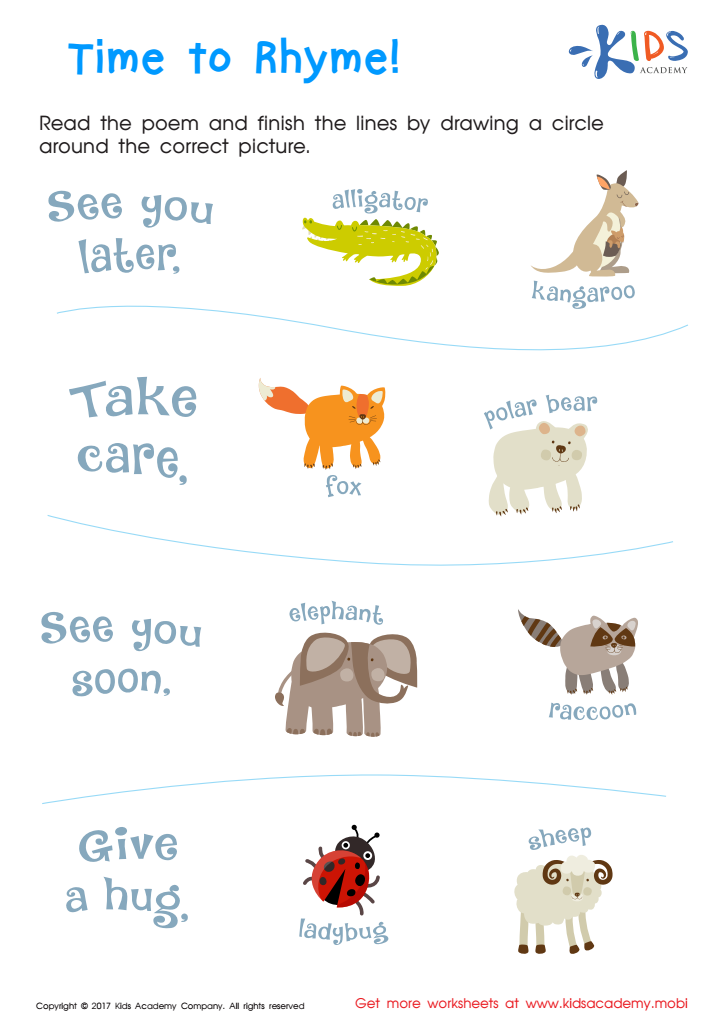Reading comprehension Normal Rhyming Worksheets for Ages 4-7
6 filtered results
-
From - To
Discover our engaging Normal Rhyming Worksheets specifically designed for children aged 4 to 7! These worksheets blend fun with education, enhancing reading comprehension skills through rhyming activities. Each worksheet encourages children to identify rhyming words, boosting their phonemic awareness and vocabulary while making learning enjoyable. Perfect for both classroom and home settings, these resources help young learners develop essential literacy skills in a playful manner. Help your child become a confident reader and foster a love for language as they explore the musical world of rhymes. Start your educational journey today with our captivating worksheets that spark creativity and critical thinking!


Rhyming Words: Assessment Worksheet


Rhymes in Poems Worksheet


Rhyming Words Rhyming Worksheet


Rhyming Bells Worksheet


First Words: Picture Rhymes Worksheet


Time to Rhyme Rhyming Worksheet
Reading comprehension is crucial for young children, especially those aged 4-7, as it's the foundation for their future academic success. At this stage, children are developing critical cognitive and language skills, making it essential for parents and teachers to prioritize comprehension strategies, such as normal rhyming. Engaging with rhymes helps children build phonetic awareness, recognize word patterns, and enhance their vocabulary.
Incorporating rhyming into reading activities can turn learning into an enjoyable experience, fostering a love for literacy. It encourages active participation and makes abstract concepts more tangible. Additionally, rhyming enhances listening skills and improves memory retention, which are vital components of comprehension.
When children grasp the underlying meanings of words and sentences, they become more adept at storytelling, expressing their thoughts, and understanding instructions. Caregivers play a pivotal role in this process. By reading aloud and discussing rhymes, they can facilitate deeper conversations about vocabulary and themes.
Ultimately, focusing on reading comprehension through rhyming equips children with essential skills they will use throughout their education. Engaging them in fun and creative ways lays the groundwork for lifelong learning and success. Parents and teachers who champion these principles help cultivate confident, proficient readers.
 Assign to My Students
Assign to My Students












